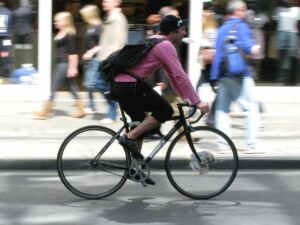News
Cyclists in Denmark are getting more aggressive
This article is more than 10 years old.
Every tenth Dane has felt threatened by a cyclist in rage

Bike rage is becoming more common (photo: ProfDEH)
Aggressiveness among cyclists – especially in the Danish capital – is on the rise.
According to the Danish Cyclists’ Federation, almost 75 percent of road users in Copenhagen – drivers, cyclists and pedestrians – have experienced bike rage incidents.
In the rest of the country, some 55 percent of all road users have encountered similarly unpleasant situations.
The survey shows that 60 percent of the interviewees experienced heckling, 40 percent got the middle finger, 11 percent received threats and 14 percent were physically attacked.
A 26-year-old named Laura, for instance, told the researchers she felt shaken after a cyclist shouted at her “I hope you die in traffic!”
Cyclists in rage
Until now, road rage has been considered a driving phenomenon, but the new figures suggest that cyclists are being aggressive too.
“For the first time, we have evidence that cyclists can be aggressive on the roads, and the numbers are relatively high considering that more than half of the country’s road users have encountered angry cyclists,” Mette Møller, a traffic psychologist from DTU Transport, told Politiken.
Threats worse than swearing
According to Thomas Nielsen, a professor of psychology and the author of the book ‘Anger’, traffic threats, in particular, are very unpleasant, illegal and should not occur.
“Threats are much worse than swearing because they stick in the mind,” Nielsen told Politiken.
“When someone is being threatening, it is to scare and intimidate the other person, and it is quite unreasonable.”










































